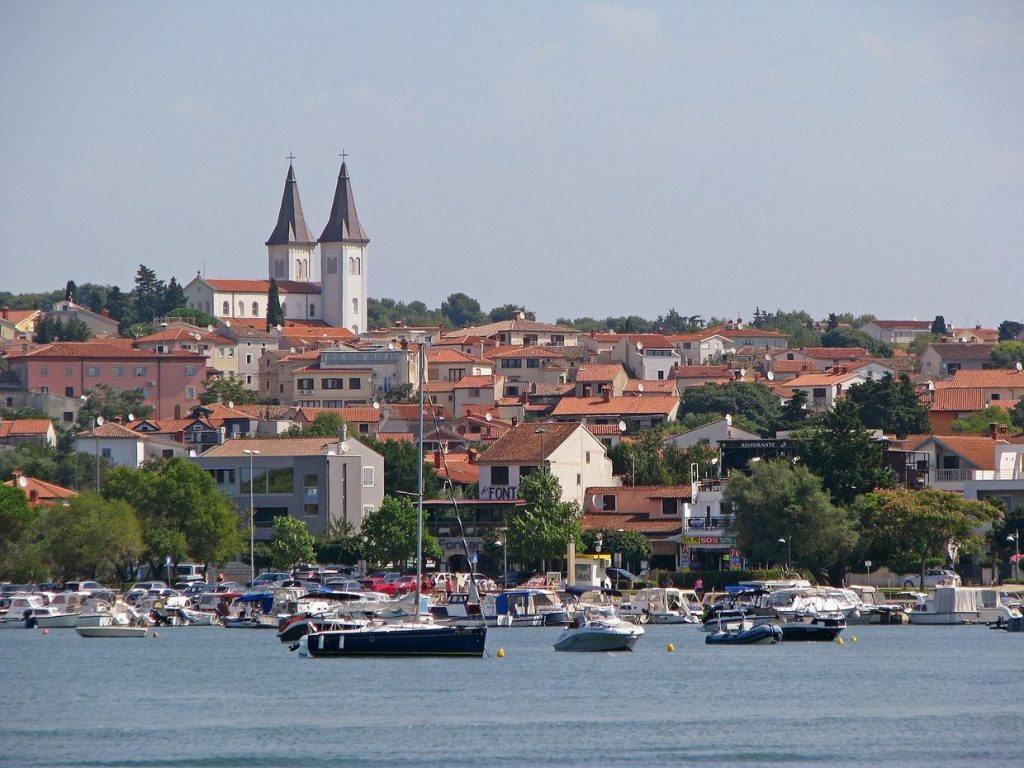Croatian police are currently searching for three Ukrainian citizens who are suspected of setting multiple ships on fire at the Medulin port on the Istrian peninsula. The incident occurred on the night of May 14, resulting in the destruction of 22 boats. The suspects, a 28-year-old and two 25-year-olds from Ukraine, reportedly entered Croatia from Poland on the same day and accessed the marina in the early hours of the morning. Two of the suspects acted as lookouts while the third allegedly launched a Molotov cocktail at one of the boats, causing a fire that spread to the other vessels. The total damage caused by the incident is estimated to be around 2 million euros. The suspects have not been apprehended and are not currently in Croatia, prompting authorities to prepare an international arrest warrant for them. Croatia is a popular tourist and sailing destination in Europe, making incidents like this particularly concerning.
In a separate development, the independent Russian anti-corruption project Dossier Center reported that two yachts allegedly belonging to Russian President Vladimir Putin have been discovered. This brings the total number of yachts that are reportedly owned by Putin to nine, based on the findings of the investigation. The Dossier Center has been actively researching and documenting the assets and wealth of high-ranking Russian officials, including Putin, in an effort to expose corruption and illicit activities. Putin’s luxurious lifestyle and extensive collection of yachts and other assets have been a subject of scrutiny and criticism, particularly in light of economic hardships faced by many Russians. The discovery of additional yachts linked to Putin underscores the ongoing challenges of corruption and transparency in Russia’s political system, despite efforts to address these issues.
The search for the Ukrainian suspects in the Medulin port fire highlights the complexities of international law enforcement cooperation and extradition processes. When suspects flee to another country after committing a crime, authorities must navigate legal frameworks and procedures to apprehend and extradite them back to face justice. In this case, Croatian authorities have referred the investigation to the state prosecutor’s office, which is now working on obtaining an international arrest warrant for the suspects. Cooperation between countries, especially within the European Union, is crucial for ensuring that criminals are held accountable for their actions and preventing them from evading justice by crossing borders. The pursuit of the Ukrainian suspects demonstrates a commitment to upholding the rule of law and ensuring that those responsible for criminal acts are brought to justice.
Meanwhile, the revelations about Putin’s alleged ownership of multiple yachts shed light on the issue of wealth and power among political elites in Russia. The contrast between the extravagant lifestyle of top officials and the struggles faced by ordinary citizens has long been a source of discontent and resentment among the Russian population. The exposure of Putin’s extensive yacht collection adds to the existing public skepticism and distrust towards the government and its leaders. Corruption and misuse of public resources erode trust in institutions and fuel dissatisfaction with the political system. As civil society organizations and investigative projects continue to uncover evidence of illicit activities by those in power, the demand for transparency, accountability, and anti-corruption measures intensifies. The scrutiny of Putin’s assets serves as a reminder of the importance of holding leaders accountable for their actions and ensuring that they serve the interests of the people.
The Medulin port fire and the discovery of Putin’s yachts exemplify the significance of investigative journalism and independent media in uncovering and reporting on important stories. In both cases, media outlets played a crucial role in bringing attention to these incidents and holding those in power accountable. Investigative journalism serves as a check on government authority and corporate interests, uncovering corruption, human rights abuses, and other wrongdoings. By providing in-depth coverage and analysis of complex issues, journalists contribute to transparency, accountability, and an informed public. The need for robust, independent journalism is particularly acute in countries with limited press freedom and high levels of corruption, where investigative reporters face censorship, intimidation, and legal threats. Supporting independent media outlets and journalists is essential for promoting democracy, safeguarding human rights, and combating corruption at both the local and global levels. The cases of the Medulin port fire and Putin’s yachts underscore the vital role that investigative journalism plays in revealing the truth and holding the powerful to account.


